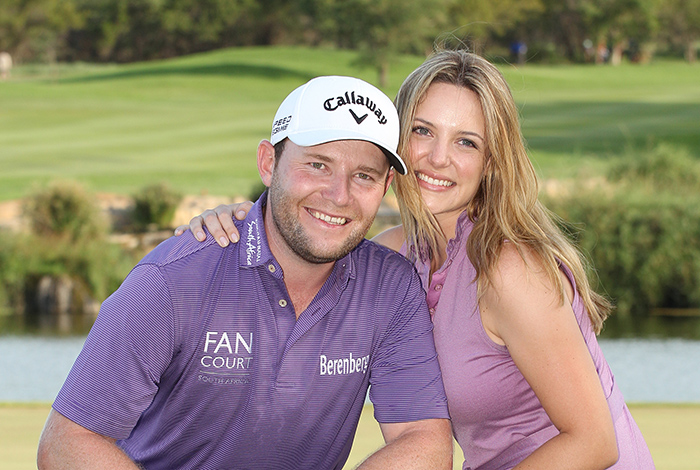If the Zika virus is as bad as some would-be Olympians fear it is, and if withdrawing from Rio 2016 is a consequence of that fear, then someone on high should be addressing the subject, writes Gary Lemke.
Maybe they have? The World Health Organisation (WHO) has proclaimed that Rio is ‘clear’ of the threat of the mosquito-born virus, which is especially at risk for females and pregnant women. Although men infected can pass it on through intimacy.
However, the show will go on, says the International Olympic Committee, and the WHO has given the Games the green light.
The 2010 Commonwealth Games were held in Delhi, where Dengue fever – also contracted through a mosquito bite – still exists but risk was declared low and the Games passed without incident.
However, world number 12 Branden Grace became the third top golfer to withdraw from Rio 2016 on the grounds of fears over the Zika virus. He joins Australians Adam Scott and Marc Leishman, world number four Rory McIlroy and Fiji’s Vijay Singh to pull out of the first Olympics since 1904 in which golf is featured as a sport.
Other golfers, including South Africa’s Louis Oosthuizen and Charl Schwartzel, previously said they couldn’t be in Rio in August ‘due to scheduling and family reasons’.
In his statement, Grace said that he was getting married in November and that the couple were planning to start a family in the near future and he wanted to protect the health of his family, and fears over the Zika virus did not allow that.
While the WHO have declared Rio ‘safe’, an alternate voice comes in the form of Canadian doctor and professor Amir Attaran in the May issue of the Harvard Public Health Review.
‘Simply put,’ he wrote, ‘Zika infection is more dangerous, and Brazil’s outbreak more extensive, than scientists reckoned a short time ago. He said that Rio’s 26,000 suspected Zika cases are higher than anywhere else in Brazil and its incidence rate is 157 per 100 000 people.
He argued that ‘it helped nobody’ to ‘speed up’ the global outbreak ‘by bringing half a million travellers to the centre of the outbreak so they can carry the disease around the world’.
So, who’s telling the truth? Whatever the reality of the situation, the fact is that it is only in golf where there has been a spate of withdrawals over the Zika fear. You don’t see other codes, be it athletics, swimming, rugby sevens, tennis, rowing or any of the more than 20 other sports being affected as visibly. Why is it that mainly the golfers are living in fear of contracting Zika?
Strangely, it’s been the men who have withdrawn due to the Zika fear and not the women who would be more at risk.
There are many who believe that Zika is a smokescreen for a wider problem: professional golfers are lukewarm about going to Rio because there is no prize money at stake and the 72-hole stroke play format is just like any other tournament on the Tour.
Darren Clarke, the Ryder Cup captain, last week defended the decision of McIlroy to withdraw – the Northern Irishman is also said to be keen on starting a family – but Clarke alluded to the golfers needing to rest.
‘Guys might like to have a week off or whatever they need to do, but because the Olympics are there now, that opportunity is taken away from them. Personally, I’d like the guys as fresh as possible for the Ryder Cup.’
Oosthuizen and Schwartzel stuck their hands up and said the scheduling of the Olympics was the main reason they had decided against being in Rio and Oosthuizen tells the latest Compleat Golfer magazine on sale this week that, ‘I represent South Africa every week on Tour. The FedEx race also reaches it’s crucial stages after that and I need to be fresh for that. I’m a proud South African so any criticism that I’m not being patriotic is off the mark’.
The IOC however, will be left red-faced by the high number of top golfers skipping Rio. Clearly, the format is wrong and it feels like any other week’s individual event. When tennis was introduced to the Olympics in 1992, many top players decided not to play. The men’s singles was won by Swiss Marc Rosset and South Africa’s Wayne Ferreira and Pietie Norval won silver in the men’s doubles.
Only after those Olympics did the tennis players ‘get it’ and understand what an Olympics is all about; it’s unique and comes round once every four years.
South Africa’s greatest-ever golfer Gary Player says he would have given everything to play for his country in an Olympics. Given that its three best current players, all ranked in the top 24 in the world, have decided to not compete means that 62nd-ranked Jaco van Zyl and 100th-ranked Brandon Stone are now likely to fly the flag.
The cut-off date is 11 July. Don’t be surprised if there are more withdrawals.








